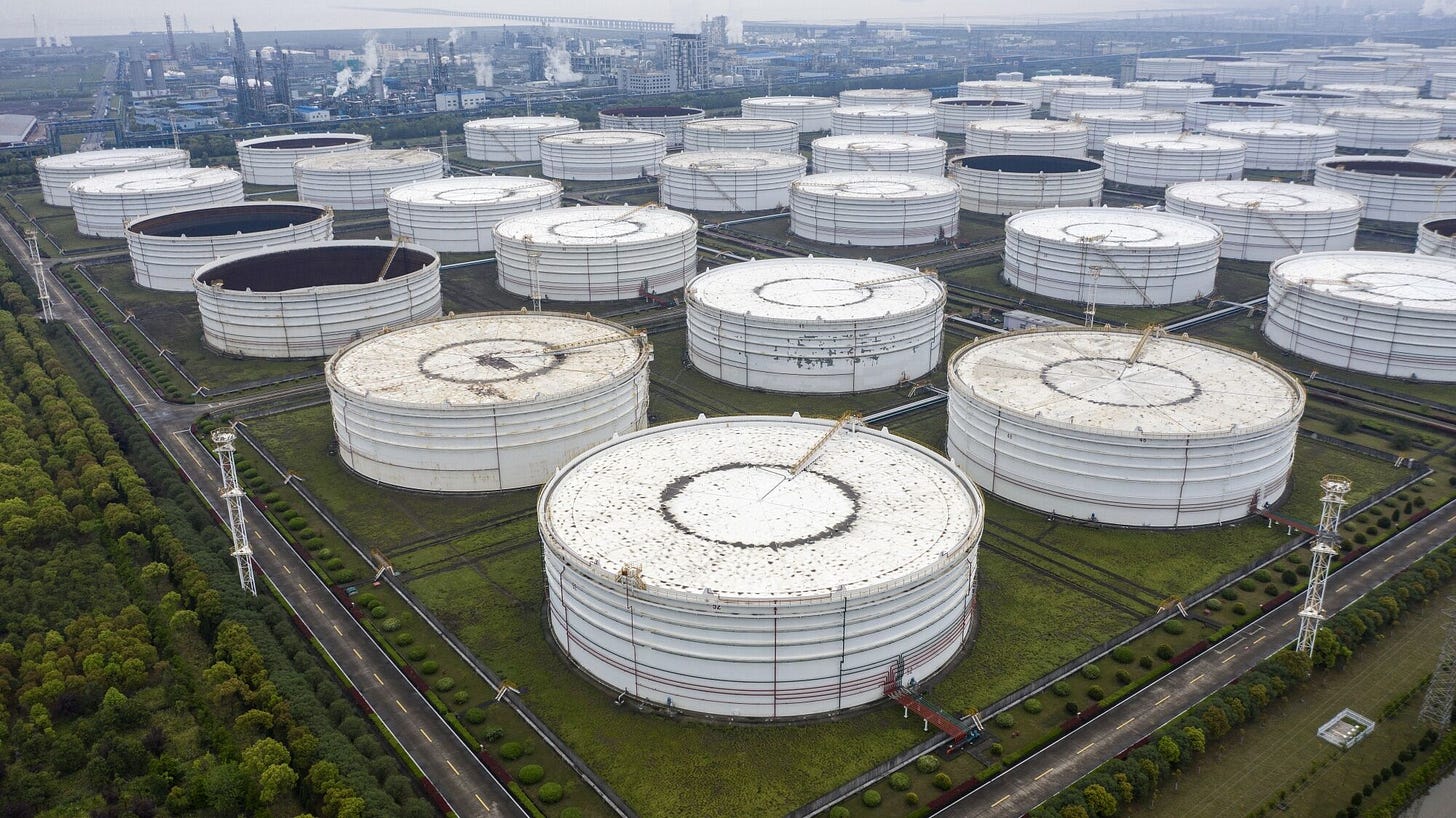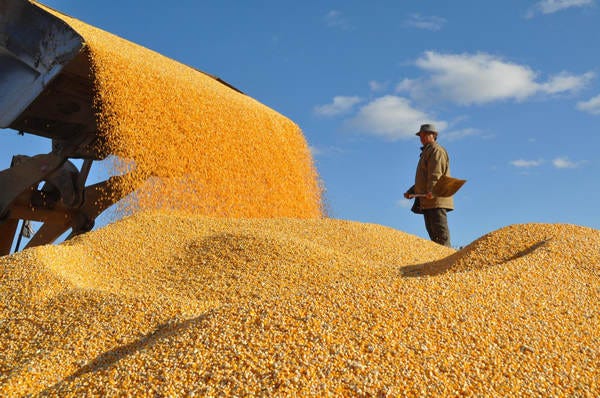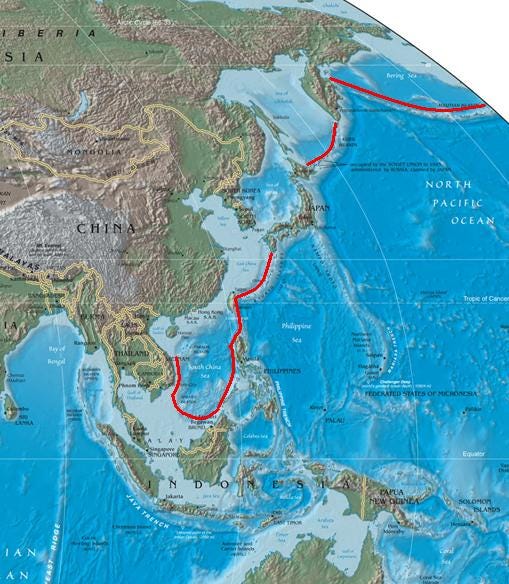According to Bloomberg, China’s oil reserves are pushing the limits of its storage capacity. Image source
Several reports in the international media have covered China’s stockpiling of commodities and other essential items, such as grain, oil, and semiconductors. These efforts have sparked fears that Beijing is preparing for war or some other destabilizing event that would cut it off from global supply chains. Although there is little evidence to support these fears in the near term, China’s moves toward greater self-reliance signal ongoing plans to shield itself from systemic global risks moving forward and do not discount the possibility of preparedness for conflict in the longer term.
Rapid stockpiling underway
It is difficult to access accurate estimates of Chinese stockpiles. China’s National Food and Strategic Reserves Administration oversees the country’s stockpiling efforts and does not reveal data. However, a combination of open-source research and sporadic Chinese statements indicates it has stockpiled several commodities and essential items over the past year and continues to do so rapidly. The US-China Economic and Security Review Commission also confirmed this in its June hearing.
The stockpiled items include minerals, such as aluminum, cobalt, copper, and zinc, which are essential for manufacturing and heavy industry. According to an expert who testified at the hearing, China has stored 2 million metric tons of copper, 900,000 tons of aluminum, and 7,000 tons of cobalt. However, China has a history of scooping up excess stock when commodity prices are low, which is now the case.
China is also stockpiling energy resources. In July, the government asked state firms to purchase an additional 60 million barrels of oil to add to the country’s reserves, according to a private analytics firm quoted in the international media. As of 2023, China’s Strategic Petroleum Reserve consisted of around 100 to 120 days’ worth of petroleum imports, exceeding international recommendations for peacetime. This reserve does not account for China’s continued access to Russian oil, which increases their total reserves to over four months’ worth of imports. China is also constructing tanks to hold liquified gas along its coast.
Beijing also appears to be stockpiling grain. Reports from earlier this year indicate a rise in Chinese purchases of feed grains, such as corn, barley, and sorghum, from various countries. In 2021, President Xi Jinping declared that “food security is an important foundation for national security.” As of mid-2022, China reportedly held over 69% of the world’s corn reserves, 60% of its rice, and 51% of its wheat. China is highly dependent on imported food, and this reserve has allowed the country to have relatively stable prices amid a series of extreme droughts and floods in recent years.
China now holds the majority of the world’s grain reserves. Image source
Likelihood of imminent conflict
China is the world’s second-largest importer in large part due to its limited domestic natural resources. With all of China’s ports surrounded by the first island chain – a string of islands stretching from Japan and Taiwan to the South China Sea that are predominantly aligned with US interests – a war in this region could severely jeopardize these imports that the country relies upon so heavily. Some experts argue that China’s recent stockpiling of strategic resources, combined with the increased deployment of forces close to Taiwan’s coastal waters and airspace, signals an upcoming war for the autonomous island. Moreover, rising tensions in the South China Sea could also signal an emerging conflict there.
These assessments are likely premature, if not incorrect. First, there are no estimates by the US or elsewhere that China intends to wage war over Taiwan in the immediate future. In June, US Secretary of Defense Lloyd Austin said that war over Taiwan was “neither imminent nor unavoidable.” In 2023, the US undersecretary of defense for policy, Colin Kahl, said, “I don’t see anything that indicates this thing is imminent,” regarding the prospect of a Chinese invasion of Taiwan. Last February, CIA Director William Burns suggested that Xi has doubts as to his country’s military capacity to successfully invade Taiwan. All of this is in contrast with the tone of US estimates before Russia invaded Ukraine, which offered ample forewarning.
Other credible indicators are also missing. If China were to invade Taiwan, there would be signs of an imminent conflict in the year or so prior. For instance, China would likely dramatically increase its production of ballistic and cruise missiles as well as rockets - these kinds of production are relatively easily to identify using satellite imagery. In terms of the economy, analysts have pointed out that China would freeze foreign financial assets within the country, suspend exports of critical minerals and other essential goods, and liquidate or repatriate large amounts of Chinese assets held abroad.
Within two months before commencing hostilities, China would almost certainly commence an extensive countrywide military exercise to mask its exact preparations. As part of this, it would probably change its strategic military posture, repositioning multiple rocket launch systems and intermediate-range ballistic missiles, and conduct frequent large-scale cyberattacks to soften the enemy’s critical infrastructure. There would also be other signs, such as a military buildup in Fujian province on the southeastern coast of China opposite Taiwan, stockpiling of ammunition, and placing troops under various battle groups there.
A war in the next two years would present a severe challenge amid multiple current setbacks. China’s economy continues to struggle, with low investor confidence, high levels of youth unemployment, and an ongoing contraction in its property market. In a wartime scenario, China’s access to global markets could be cut off, thus presenting a detrimental threat to its economic recovery. China’s naval capabilities may also not be up to the task, particularly in providing an ‘amphibious lift’ or transporting troops and resources during seaborne operations. Although China has improved its amphibious capability by incorporating civilian vessels in recent years, more time is likely needed to achieve the full benefit of this move.
The First Island Chain hems in China’s access to the world’s oceans. Image source
Stockpiling as part of China’s strategic goal toward greater self-reliance
China’s stockpiling efforts are likely linked to its long-term strategy of improving self-reliance to safeguard its security and economic goals. These moves come amid increased US tariffs under the Trump administration that have continued under the Biden administration and growing calls for greater trade protectionism in Europe and elsewhere. Indeed, President Xi first referred to the need to “travel the road of self-reliance” in November 2018, around seven months after the announcement of US tariffs. Xi has reiterated this sentiment several times in subsequent party and government communications, including at the 2023 National People’s Congress.
China’s stockpiling of semiconductor chips and increased production of ‘legacy’ chips also comes amid US export controls on these technologies. These moves have likely caused the theme of self-sufficiency and national resilience to carry over into high-level policy roundtables, such as the Chinese Communist Party’s third plenum. This approach also helps China hedge against black swan events, including disease outbreaks such as COVID-19 and climate shocks.
Conclusion
Although China may initiate a war over Taiwan or the SCS at some point in the future, its ongoing stockpiling of commodities and other items does not necessarily indicate it is preparing to do so imminently. Instead, these moves align with its longstanding goal to improve self-reliance, limiting its vulnerability to foreign influence. However, they do not discount the possibility that China is preparing for a conflict in the longer-term.







Peter Zeihan's analysis of the state of affairs in China seem to indicate that a major conflict (kinetic or economic) is a non-starter. It appears that China is using the global misconception of their ability to project themselves to achieve goals they don't have the leverage for otherwise.